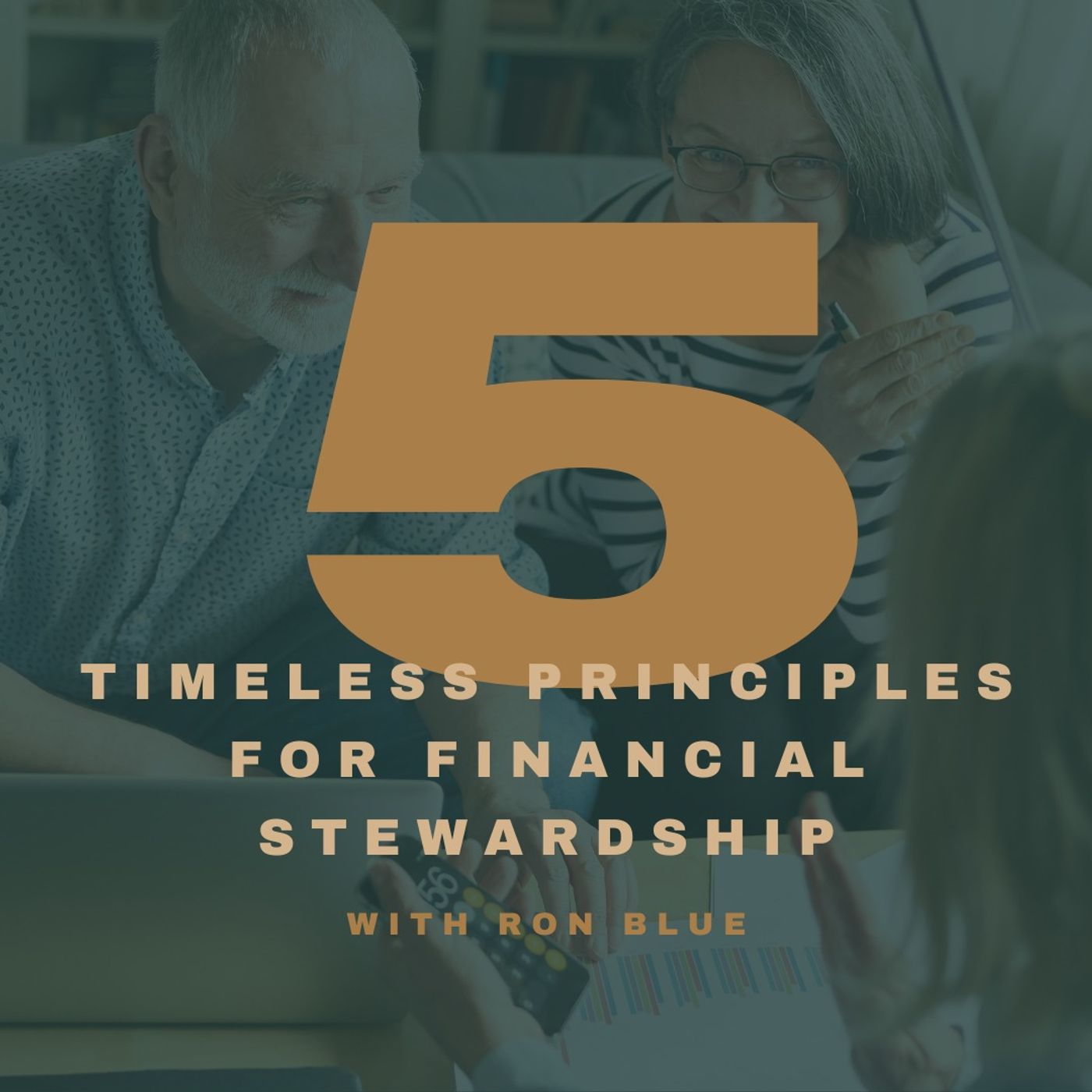5 Timeless Principles for Financial Stewardship with Ron Blue
- Author
- FaithFi: Faith & Finance
- Published
- Wed 03 Sep 2025
- Episode Link
- https://www.faithfi.com/
Some things change with the times—but God’s financial principles never do. They’re not only timeless; they work in every situation, for every person, at every income level.
Whether you’re barely making ends meet or managing significant wealth, the Bible’s wisdom for handling money is always right on target. Today, Ron Blue will unpack five proven principles for managing your money well.
Ron Blue is a nationally recognized financial expert, co-founder of Kingdom Advisors, and author of more than 20 books on biblical money management. With decades of experience advising families and leaders, he has dedicated his life to equipping Christians to manage their resources wisely and steward them for God’s kingdom purposes.
A Lesson From the Senate Floor
Back in the early 1990s, Ron Blue was invited to testify before a U.S. Senate subcommittee on family and money matters. When asked what advice he would give American families, his response was simple yet profound:
- Spend less than you earn.
- Avoid debt.
- Build liquidity or margin.
- Set long-term goals.
- Give generously.
To Ron’s surprise, the senator responded, “That would work for every family—at any income level.” Ron smiled and added, “Yes, Senator, including the United States government.”
These five principles, he says, are universal. They apply not just to families, but also to businesses, communities, and even nations.
Principle 1: Spend Less Than You Earn
This is the foundation of wise financial decision-making.
It’s the “slow road to wealth,” but it’s also the surest way to financial freedom. This principle enables families to establish stability without pursuing risky shortcuts or falling into the trap of trying to become wealthy quickly.
Principle 2: Avoid Debt
Debt can be both a practical and spiritual burden. From a financial standpoint, debt always mortgages the future. Any borrowed money becomes a priority expense—one that takes precedence over all others until it’s repaid.
Not all debt is created equal—some can be strategic, like a mortgage—but even “good” debt ties up future income and limits financial flexibility.
Principle 3: Build Liquidity (Margin)
Margin is what allows families to weather life’s inevitable surprises—a medical bill, car repair, or job loss—without spiraling into crisis.
People with cash flow margin are always more secure. They know they can meet the unexpected, and that creates peace of mind and security. An emergency fund isn’t just about financial stability; it’s about emotional and spiritual calm when life throws curveballs.
Principle 4: Set Long-Term Goals
Short-term thinking often leads to financial stress and impulsive decisions. By setting long-term goals, families can prioritize spending and align their financial choices with their values.
The longer term your perspective, the better your decision today. Goals give direction and help families measure progress—not just in wealth, but in stewardship and Kingdom impact.
Principle 5: Give Generously
Finally, generosity breaks the power of money. Jesus taught that we cannot serve both God and money (Matthew 6:24). By giving, we release our grip on wealth and keep our hearts anchored in Christ rather than in material security.
Generosity is the only way to break money’s hold on you.
Timeless Wisdom for Every Household
Whether you’re just starting your financial journey or seeking a reset, these five principles offer a roadmap to freedom and peace. They are not about complicated strategies or quick fixes—they’re about faithful, steady stewardship rooted in biblical wisdom.
If you do these five things, you’ll position yourself for God’s best in your finances.
On Today’s Program, Rob Answers Listener Questions:
- I recently started a new job, but I still have a 401(k) from my previous employer. Since I’m over 55, I was told I can withdraw from it without a penalty. My husband thinks we should withdraw $15,000 to cover some home repairs, but I’m nervous about dipping into my retirement savings.
- I’m 51 and planning to retire at the end of next year. I have a state pension, along with several 401(k) and 403(b) accounts I’ve accumulated over the years. What’s the best way to handle these accounts once I retire?
- My husband and I have been married for 12 years, and we have a prenup that keeps our finances separate. I have around $700,000 in savings and a terminal illness. How should I decide how much to leave for my husband and how much to give to the Lord?
- I’ve had a reverse mortgage since 2010, and my house has increased significantly in value. I’d like to know how much equity I can access now and whether I need to refinance, or if it’s possible to expand my line of credit simply.
Resources Mentioned:
- Faithful Steward: FaithFi’s New Quarterly Magazine (Become a FaithFi Partner)
- FamilyLife | FamilyLife Blended
- Wisdom Over Wealth: 12 Lessons from Ecclesiastes on Money
- Look At The Sparrows: A 21-Day Devotional on Financial Fear and Anxiety
- Rich Toward God: A Study on the Parable of the Rich Fool
- Find a Certified Kingdom Advisor (CKA) or Certified Christian Financial Counselor (CertCFC)
- FaithFi App
Remember, you can call in to ask your questions most days at (800) 525-7000. Faith & Finance is also available on the Moody Radio Network and American Family Radio. Visit our website at FaithFi.com where you can join the FaithFi Community and give as we expand our outreach.
